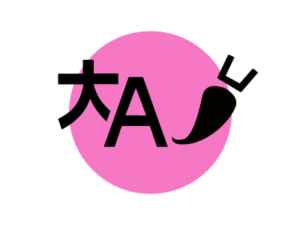French higher education has adopted the BMD system:
- Bachelor’s
- Master’s
- Doctorate

STUDIES
& HOW THEY WORK
Most of the degrees it delivers enable obtainment of ECTS (European Credit Transfer and Accumulation System) credits.
The ECTS is a point system developed by the European Union. Credits are divided up into Teaching Units (TUs – UE unité d’enseignement in French).
The system aims to facilitate understanding and comparison of study programs in given countries and in EU Member States. The ECTS system mainly applies to university training.
There are 3 higher education levels in France:
- B for Bachelor’s: 6 semesters – 180 ECTS credits
- M for Master’s: 4 semesters – 120 ECTS credits
- D for Doctorate: 6 semesters – 180 ECTS credits
To find out more about the BMD system, consult the Campus France website
THE UNIVERSITY CalEndAr
In France, the academic year starts in September or October depending on institution and type of course.
It is interspersed with holidays, including 2 weeks for Christmas and New Year .
Each year is divided into 2 semesters
At the end of the first semester, courses are interrupted for a short period so that exams can be held.
The summer holidays start in May or June following second semester assessments. They usually last at least 2 months.
First semester:
- The first semester starts in September/October
- And ends in January/February
Second semester:
- The second semester starts in January/February
- And ends in May/June
Université de Lorraine’s complete university calendar is available here.
However, each component may apply a different calendar depending on constraints relating to the courses on offer. The calendar is displayed in your study component or available on your ENT (Digital Work Environment). You can also contact your component’s tuition department to obtain it.
THE GRADING SYSTeM
Understanding your transcripts
In France, the grading scale goes from 0 to 20, 0 being the worst score and 20 the best.
You must obtain an average of 10/20 in order to validate ECTS credits. If you get under 10/20 you can take makeup exams, which are held in June-July.
You can access your exam results (transcripts) on your ENT (Digital Work Environment).
Have you validated the semester/year?
- Admis [ADM – Admission]: You’ve validated your semesters, so you’ve completed the academic year successfully.
- Admis Compensé [ADMC – Compensated Admission]: You haven’t obtained the average for a semester or a Teaching Unit, but thanks to annual compensation of grades, you’re admitted.
- Ajourné [AJ – Deferral]: You haven’t succeeded in validating your semester/year. You’ll have a second chance at makeup.
- Défaillant [DEF – Fail]: You didn’t turn up for the exam. You haven’t completed your semester/academic year successfully.
exams
2 types of knowledge assessment at universities:
- Continuous assessment, which enables validation of knowledge acquired in all subjects with oral and written exams held throughout the year
- Oral and written exams in all subjects, held at the end of each semester
To find out more about the French university system, consult the Campus France website.
CLASS FORMATS IN HIGHER EDUCATION IN France
Lectures:
They’re delivered in amphitheaters (also known as “amphis”), so exchanges with the teacher are limited. You must above all take notes.
Tutorials and Practical Work:
Also known as TD (for Travaux Dirigés) and TP (for Travaux Pratiques) respectively, these are small-group classes delivered in classrooms or laboratories. During TD and TP, you expand on and apply the theoretical notions addressed in lectures. Attendance (also called assiduity) is mandatory. TP and TD may be complemented by company placements.


